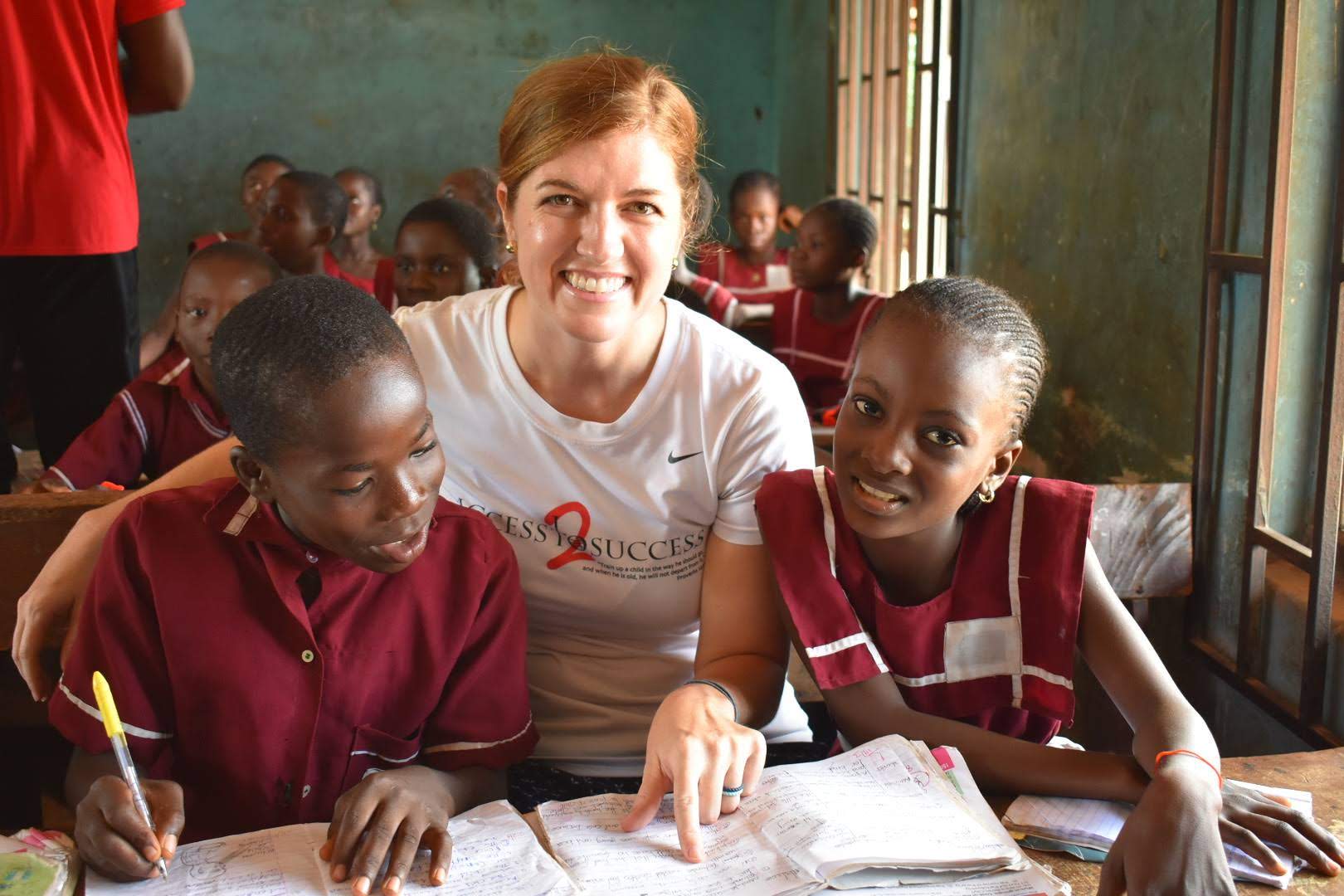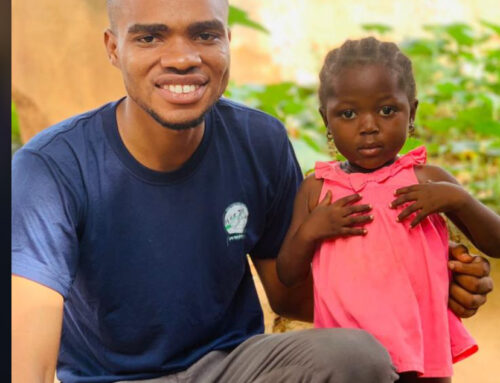Morgan Clark, A2S Co-founder
October 2023
As a co-founder of A2S, I’ve been incredibly fortunate to witness the growth and the power of our US and Nigerian teams of staff, volunteers, and supporters. It’s easy to look at A2S now and think that we were always operating at the level we are today. But getting here has involved moments where our organizational growth has challenged us (often unexpectedly).
The moment that it became real for me, and I realized A2S had grown into a large and diverse employer and community organization was when our first employee got pregnant! We were no longer a small shop composed of a handful of volunteers. We were now a fully medium-sized non-profit that needed some additional HR policies (and quickly! :)).
Six years later, A2S has a three-month paid maternity leave policy, followed by three months of half-days upon return to work. Additionally, A2S opened a free-of-charge nursery room at the Youth Center so that moms returning to work can have their babies nearby – enabling them to feed and care for their children without worry, which allows them freedom and space to do what they need to do – something any mother values and understands.
I am fortunate to work for a wonderful company that provides significant benefits and options for its employees, and I have dependable childcare, but I know that many others in the US and in Nigeria do not have this luxury. It has been tough transitioning from a ‘working woman’ to a ‘working mother,’ even with all the benefits that I have. A simple google search of ‘economics of working mothers’ returns headlines results that reflect the daily struggle that women all over the world face:
“working moms critical to a thriving economy”
“working moms at risk of being left behind,”
“women work more than men in all parts of the world: they perform almost two and a half times more unpaid work at home than men do”
“In Nigeria, where women represent only 31.4% of management roles, A2S’s Nigerian leadership is 50% women. These numbers are just as great at home, where 50% of our US staff and board members are women.”
Studies show that the world’s most competitive economies are those in which the gap between opportunities for men and women is minimal. In Nigeria, the percentage of working-age females in the workforce is relatively high at 52.1% (males are 65.5%), but a large chunk of that employment is ‘vulnerable work’ (84.7% for Nigerian women) resulting in lower labor income.
That’s why I’m so proud of A2S, who is leading the way in providing living wages and leadership opportunities for its Nigerian staff, of which 80% are women! The entrepreneurship programs that A2S is running in Nigeria are also helping the community transition from vulnerable work to wage work, which is a strong mark of a healthier nation. In Nigeria, where women represent only 31.4% of management roles, A2S’s Nigerian leadership is 50% women. And these numbers are just as great at home, where 50% of our US staff and board members are women.
With the current state of women’s rights and family care in the US and worldwide, it is all the more important to champion organizations that recognize that mothers are critical to economic growth and prosperity, and provide programs and policies that support mothers as they raise the next generation of future leaders and continue to grow in their careers. I’m so proud of A2S for being an industry leader in Nigeria and the US. I know the community we’ve helped support and develop through these policies will prove to be instrumental as A2S continues to grow and navigate new challenges.
References and Notes:
https://genderdata.worldbank.org/countries/nigeria
Vulnerable work is comprised of forms of self-employment (on or off the farm, own-account or being a family worker in a household income activity) and associated with lower labor income and low job security. Wage work is working for an employer (which can be a private employer or public sector, and informal or formal) and associated with greater labor income, greater job security and healthy working conditions. – World Bank, Gender Data Portal
“For example, in one of our studies we found that the world’s most competitive economies are those in which the gap between opportunities for men and women is minimal. Some countries are losing up to 27 percent of their GDP as a result of incomplete inclusion of women in the labor market (data from the International Monetary Fund). Raising women’s participation in the labor market up to the level of men’s participation could significantly boost countries’ GDP.” – World Bank, 2018.
https://www.whitehouse.gov/cea/written-materials/2023/05/16/this-mothers-day-more-moms-back-at-work-but-care-challenges-remain/
https://genderdata.worldbank.org/countries/nigeria






























